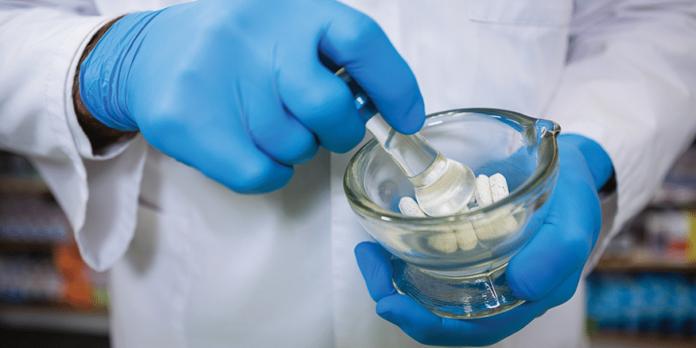When a patient is unable to take a commercially available drug or needs a medication that has been discontinued, a licensed pharmacist can recreate it through compounding. Patients may not respond to traditional forms of treatment, or they may require their medication in a different form. Compounding meets these needs by providing customized solutions for each patient’s needs, benefiting both your customers and your pharmacy.
All medications were once compounded. However, with the advent of mass drug manufacturing, the role of compounding fell out of favor, and pharmacists were viewed more as generic drug dispensers. However, technological advancements and the rise of innovative techniques have allowed pharmacists to customize medications in recent decades, making investigating the benefits of compounding as a differentiator in your market even more important.
If you are still on the fence about introducing compounding to your pharmacy, we have hand-picked these pharmacy compounding benefits to demonstrate how it can boost your business while also helping your patients live healthier and happier lives.
- Providing Services that Pharmacy Chains Do Not
When it comes to compounding, your first priority should be to identify your patients’ needs. What side effects are your patients experiencing? What questions might they have while taking their medication? And, once you have decided to develop a new product, how do you know where to start? A compounding niche can provide patients with a service that most other pharmacies do not provide. It enables the pharmacist to use their extensive drug knowledge to assist the patient and prescriber in developing a truly personalized treatment plan. Compounding pharmacists are frequently able to provide treatments for unusual or resistant diseases that traditional allopathic medicine cannot or has failed to treat.
- Allowing for Different Dosage Forms
Patients may require a different dosage form of their medication from time to time. Patients who have difficulty swallowing pills, for example, may find it easier to take their medication in a pleasantly flavored liquid form. Some medications can also be compounded in a topical form, such as a cream or gel that allows the medicine to enter the bloodstream through the skin. As a compounding pharmacist, you can provide these products in a variety of dosage forms based on the patient’s preferred method of compliance!
- Making Medication Allergy-Friendly
Allergies, sensitivity, and a patient’s intolerance of dyes, lactose, gluten, or alcohol can all cause unwanted reactions when taking a medication. In other cases, commercially available medications may contain excipients such as fillers and preservatives that the patient cannot tolerate due to sensitivities or allergies to these ingredients. A compounding pharmacist can create a formula without offensive ingredients, ensuring that the patient receives the appropriate treatment.
- Giving Patients Access to Discontinued Medications
When large manufacturers stop producing certain drugs, it makes it difficult for patients who still require these medications to fill their prescriptions. Compounding pharmacists play an important role in resurrecting discontinued medications by recreating pharmaceutical-based ingredients to ensure that patients receive the critical care they require. Compounding pharmacies now have access to the highest quality pharmaceutical ingredients and can fill prescriptions using the most recent research, quality control processes, and techniques to help meet the needs of each individual patient. You, too, can assist your customers in obtaining the full range of medications they require.
